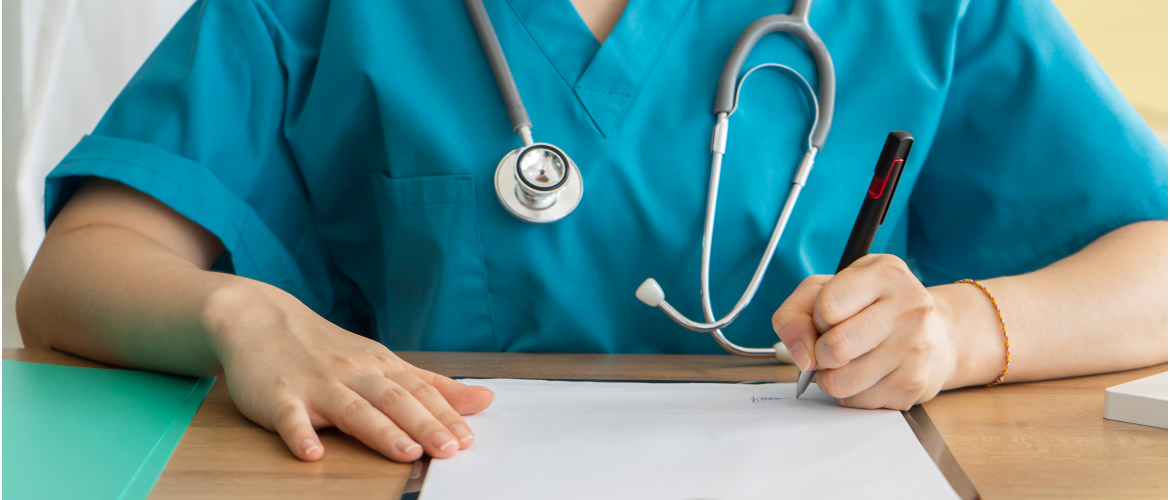
Residency Application Timeline for Medical Students
Applying to residency is a critical milestone in a medical student’s career, representing the transition from the academic realm to the practical world of medicine. It allows aspiring physicians to get a good position and continue their professional development.
The process can be overwhelming, but a clear understanding of the residency application timeline can help applicants stay organized and meet deadlines. For those planning their journey, aligning with the residency application timeline 2025 can ensure all essential steps are completed on time. Below is a list of the main tasks and activities by month.
Pre-Application Phase
18-12 months before:
- Begin researching different programs, gradually narrowing down a number of preferable options.
- Gather more information about chosen programs, including their requirements and application deadlines.
- Consider networking with faculty, mentors, and current residents to gain insights into different programs.
12-9 months before:
- If not already completed, get registered and take the USMLE Step 2 Clinical Knowledge exam.
- Start working on your CV.
- Start drafting your residency application personal statement and seek feedback from mentors or advisors.
- Request letters of recommendation (LoRs) from faculty members who know you well.
Application Phase
June:
- Register ERAS and obtain your ERAS Token.
- Begin filling out the residency application form in MyERAS, including personal information, academic history, and work experience.
- Collect official transcripts from your medical school.
July:
- Request official USMLE transcripts to be sent to ERAS.
- Finalize and submit your residency application personal statement.
- Ask your recommenders to submit their letters through the ERAS Letter of Recommendation Portal.
- Begin researching programs and create a list of interests.
August:
- Complete the MyERAS, ensuring all sections are accurately filled out.
- Upload your CV, personal statement, and other supporting documents to MyERAS.
- Start submitting residency applications through ERAS.
September – December:
- Continue applying to residency programs within your desired specialty.
- Monitor your admission status through the MyERAS portal.
- Prepare for interviews by researching programs, practicing common interview questions, and participating in interviews.
Post-Application Phase
January – February:
- Attend interviews and visit programs of interest.
- Send thank-you notes or emails to interviewers to express gratitude and reiterate your interest.
- Consider creating a rank list of preferred residency application programs based on your interview experiences.
February – March:
- Submit your rank.
What Are the First Vital Steps of Applying to Residency?
Research and Preparation
- Reflect on your interests, values, and long-term career goals and relate them with residency application programs.
- Observe physicians in different specialties to gain firsthand experience.
- Talk to residents and attend specialty-specific events or conferences.
- Utilize online resources, such as medical forums and specialty-specific websites, to gather information about different specialties.
At the preparation stage, you also should start gathering relevant documentation:
- Curriculum Vitae (CV) highlighting your academic achievements, clinical experiences, research projects, publications, and leadership roles.
- Letters of recommendation (LoRs) from faculty members who know you well.
- Residency application personal statement that briefly describes your motivation, goals, and your match with a chosen program.
- Transcripts: Obtain official transcripts from your medical school and any additional institutions attended during medical education.
- USMLE Step 1 and Step 2 Clinical Knowledge (CK) scores.
ERAS Electronic Service
- Register an ERAS account and obtain the ERAS Token.
- Complete the MyERAS residency application, which includes personal information, academic history, work and volunteer experiences, and a personal statement.
- Upload supporting documents, such as your CV, personal statement, and transcripts.
There are various sections of the MyERAS, namely:
- Personal Information section, including contact details and general information about your residency application candidacy.
- Section for Work and Volunteer Experience (clinical rotations, research experiences, teaching engagements, and volunteer work).
- A place to upload Medical School Transcripts and USMLE Scores.

Writing a Strong Residency Application Personal Statement
Pay special attention to this admission document, as your personal statement is what that allows you to showcase your authentic self and what drives your passion for medicine and your chosen specialty, filling gaps you may have in other documents. Emphasize experiences that have significantly shaped your professional and personal growth, illustrating how they have influenced your decision to pursue a medical career.
Here are some guidelines for structuring and formatting this residency application document effectively:
- Begin with a captivating introduction to grab the reader’s attention.
- Demonstrate self-reflection and convey your motivations to pursue a specific specialty.
- Highlight relevant experiences like research projects, clinical rotations, or community involvement.
- Emphasize personal growth and lessons learned from challenges or setbacks.
- Conclude with a strong summary reiterating your commitment to the specialty and future goals.
LoRs as a Vital Part of the Residency Application Process
Submitting several recommendation letters is another essential of the medical residency application. So choosing recommenders who can provide meaningful insight into your abilities and character is vital:
- Identify faculty members who have supervised your clinical rotations or research projects.
- Consider specialists who can appreciate your skills, work ethic & dedication to patient care.
Besides, take care of on-time LoRs preparation to cope with this residency application part successfully:
- Contact potential recommenders in advance to discuss your goals and request their support.
- Provide recommenders with a comprehensive package of information, including your CV, personal statement, and any specific details they may need to write a strong letter.
- Follow up with recommenders to ensure timely submission of their letters.
Tips and Best Practices for Medical Residency Application
What to Pay Attention to When Creating a Strong CV?
Tailoring it to a particular residency application program by highlighting relevant experiences, such as clinical rotations, research projects, leadership roles, and community service, is vital. Additionally, including concise and impactful descriptions of your responsibilities and achievements can make your CV stand out. Lastly, seeking feedback from mentors or advisors can provide valuable insights and ensure that your CV effectively represents your qualifications.
How to Prepare for an Interview?
Begin by researching the programs you have been invited to interview with, thoroughly examining their strengths, values & recent achievements. This will help you to tailor your responses to your residency application and demonstrate your alignment with their mission. Understanding the residency process and the values each program holds can help you better communicate your fit during the interview. Practice answering common interview questions and crafting concise and well-thought-out responses. Mock interviews with mentors, colleagues, or career services can help.
During the interview with officials considering your residency application, exhibit professionalism, active listening, and enthusiasm to showcase your interest in their program.
Strategies for Managing Stress During the Application Process
To maintain well-being during admissions, begin the process early, allowing ample time to complete tasks and handle unexpected challenges. Creating a detailed schedule with the residency application process deadlines for each admission component and allocating specific time for studying, relaxation, and self-care helps maintain a balanced approach.
Top Hospitals and Medical Centers for Applying to Residency Programs
We’d like to reiterate the importance of adapting your application for residency approach to the requirements of the institution and program you are applying for. While the documentation and admission rules may be general, the programs’ values, unique features & capabilities may differ and must be considered.
Lutheran Family Health Center Program Internal Medicine Residency Application
One special requirement of admissions is a demonstrated commitment to serving the poor and a strong interest in public health. Applicants should emphasize their experiences in community medicine, primary care, and working with diverse patient populations. This residency application program also values candidates with a passion for providing comprehensive healthcare in a culturally sensitive manner – so mention relevant information in your documents.
Mercy Hospital and Medical Center Program Internal Medicine Residency Application
Their programs demand clinical experience and hands-on patient care. They need candidates with extensive clinical experience, great communicative skills, and a desire to help patients. In addition, they value those who have leadership skills and can work effectively in a multidisciplinary team.
Brooklyn Hospital Center Program Internal Medicine Residency Application
The hospital values applicants who have a genuine interest in urban healthcare and are dedicated to serving the diverse population of Brooklyn. The candidates should highlight their experiences in community outreach, patient advocacy, and multicultural healthcare. Demonstrating cultural competency, resilience, and adaptability are also valued attributes.
Brookdale University Hospital and Medical Center Program Internal Medicine Residency Application
Their officials seek candidates willing to provide comprehensive care in resource-limited settings. Demonstrating cultural sensitivity, strong communication skills, and a passion for patient advocacy will be advantageous for admission to Brookdale.
Abington Memorial Hospital Program Internal Medicine Residency Application
The hospital values residency candidates with a solid academic foundation, a commitment to excellence in patient care, and the ability to work collaboratively. The program emphasizes research experience and encourages applicants to highlight their scholarly achievements via residency applications. Additionally, the hospital’s admission officials value candidates who show a dedication to lifelong learning, leadership potential & a desire to contribute to the medical field and community.
Get Professional Residency Application Help Right Now
You can increase your chances of securing a coveted position with determination, proactive efforts, and well-prepared admission documents – just embrace the process, stay focused, and trust in your abilities. Besides, there are admission experts who are always ready to cover your back during the whole residency application process.
Keeping track of important dates on the ERAS residency timeline can help you stay organized and ensure you submit all required documents on time. Residencypersonalstatements.net’s team has advanced expertise and years of experience crafting admission documentation that effectively highlights applicants’ unique qualities, experiences, and aspirations to stand out among other candidates. So consider getting professional residency application help if you want to go through the admission process seamlessly, ensuring your ERAS application is flawless.
Feel free to contact our writing specialists anytime you may need their help – the best admission experts are here for you 24/7!

WHAT IS A PERSONAL STATEMENT: COMPREHENSIVE OVERVIEW AND HELPFUL TIPS
What Is a Personal Statement for College In the broadest sense, a personal statement (PS) is a self-analysis in which you can narrate yourself from a self-critical perspective. It’s about your background, your accomplishments that you think are important, and your motives. This varies depending on what and where you are writing your text. Most […]
Read More
How to Write Residency Personal Statement to Impress
How to Write a Residency Personal Statement: The Basics After your hard work in med school, it’s time to secure residency to take your career a notch higher. Residency slots are competitive, and a contender has to dig deep to earn a spot in their preferred program. As you may already know, a personal statement […]
Read More